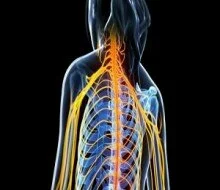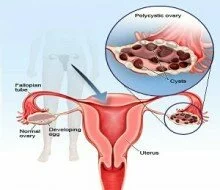Although the exact number of people with multiple sclerosis (MS) in America is not known, there are estimated to be 2.3 million people affected worldwide. MS is a varied condition that affects the brain and/or spinal cord. It can cause a wide range of symptoms including difficulties with the movement of limbs, changes in vision, and problems with balance and sensation. Although there is no cure, scientists have demonstrated that, for individuals with mild to moderate disability, exercise can improve the severity of certain symptoms. Exercise has been shown to increase muscular strength and aerobic capacity and improve the individual’s sense of wellness.
…
Daily Archives : Sunday, October 2nd, 2016
FDA approves first automated insulin delivery device for type 1 diabetes
The U.S. Food and Drug Administration has approved Medtronic’s MiniMed 670G hybrid closed looped system, the first FDA-approved device that is intended to automatically monitor glucose (sugar) and provide appropriate basal insulin doses in people 14 years of age and older with type 1 diabetes. The human pancreas naturally supplies a low, continuous rate of insulin, known as basal or background insulin. In patients with diabetes, the body’s ability to produce or respond to insulin is impaired. “The FDA is dedicated to making technologies available that can help improve the quality of life for those with chronic diseases – especially those that require day-to-day maintenance and ongoing attention,” said Jeffrey Shuren, M.D., J.D., director of the FDA’s Center for Devices and Radiological Health. …
Ovarian removal should be avoided in premenopausal women: Study
New York: Oophorectomy or removal of ovaries in premenopausal women who are not at a high risk of cancer should not be considered as they may become prone to chronic health conditions, researchers suggested. The study showed that women under 46 who had both ovaries removed have high risk of getting diagnosed with multiple chronic health conditions like depression, hyperlipidemia, cardiac arrhythmias, coronary artery disease, arthritis, asthma, chronic obstructive pulmonary disease and osteoporosis. Bilateral oophorectomy is the formal term for removal of both ovaries, often used as a preventive measure against ovarian cancer. …
Use air purifiers to tackle respiratory, health problems: Doctors
New Delhi: With 92 per cent of the world’s population exposed to unsafe levels of air pollution, health experts have urged people to use air purifiers to tackle poor air, causing respiratory diseases. They have said that though it sounds unrelated, but breathing in polluted air could lead not just to respiratory diseases but also to obesity and complications like increased chances of miscarriage and poor foetal development. According to the experts, high levels of air pollution is not only leading to an increase in the respiratory diseases, like poor lung function, asthma and allergies, but also to other health problems like obesity, poor foetal development and increased cases of miscarriage. …
Hypertension may affect cognitive skills in children
Hypertension or high blood pressure is rapidly increasing in children, largely as a consequence of their obesity. This high blood pressure in children and adolescents can significantly affect their mental skills, a study has found. In the study, children with hypertension performed low on cognitive tests on visual and verbal memory, processing speed, and verbal skills. Children with sleep issues were found to have had hypertension, which intensified the effect of poor sleep on cognition and executive function, the researchers said. Knowing how these physical changes might affect cognitive skills could be important in future studies that assess whether anti-hypertensive treatments could improve cognitive performance in children with hypertension and reverse or prevent future adult hypertension-related problems, said Marc B. Lande from the University of Rochester in New York, US. …
Uganda: Campaign to Fight Teenage Smoking
Good Business have partnered with Scanad Uganda to bring to life a teen-led exciting movement called Fly, aimed at building confidence and resilience amongst teens so they can resist abuse of drugs, alcohol and smoking. Speaking at the launch held at Riders Lounge in Kololo last week, Dr Sheila Ndyanabangi the ministry of health focal person on tobacco control said: “Youth will always experiment with drugs unless you provide them with an alternative. An idle mind is the devil’s workshop. …
Omega-3 fatty acid can suppress lupus, autoimmune disorders
New York: Consuming an omega-3 fatty acid called DHA, or docosahexaenoic acid — commonly found in fatty, cold-water fish, has the potential to suppress signalling pathways of lupus as well as other autoimmune disorders, researchers have found. Lupus is an inflammatory disease caused when the immune system attacks its own tissues and it can damage any part of the body including skin, joints and organs. The study found that when lupus was triggered by crystalline silica, a toxic mineral — also known as quartz — that is linked to human autoimmunity, DHA blocked the activation of the disease. …




